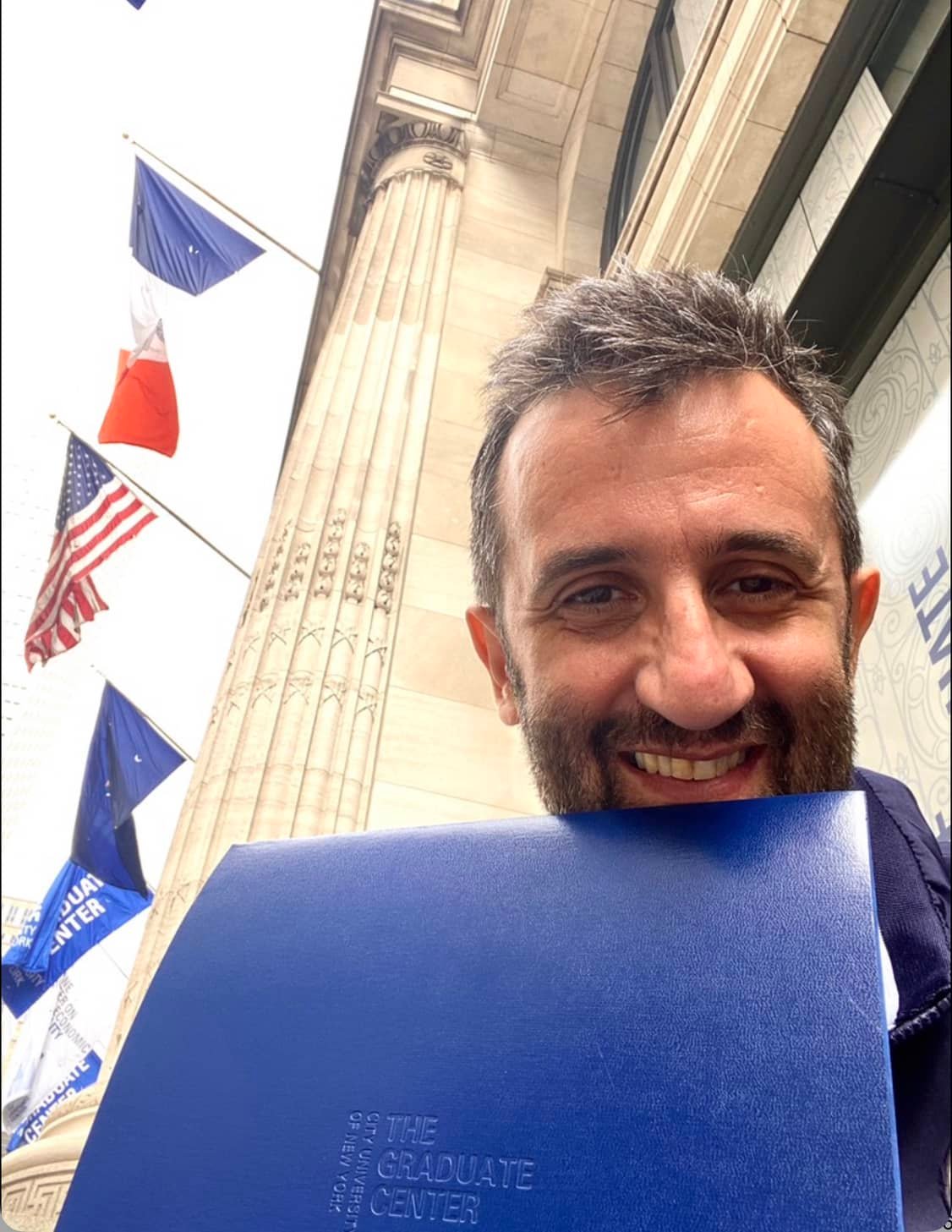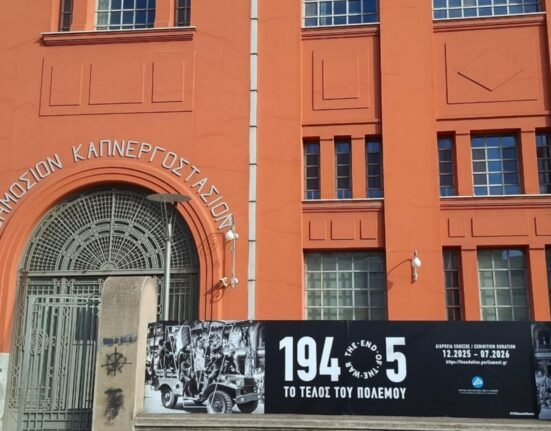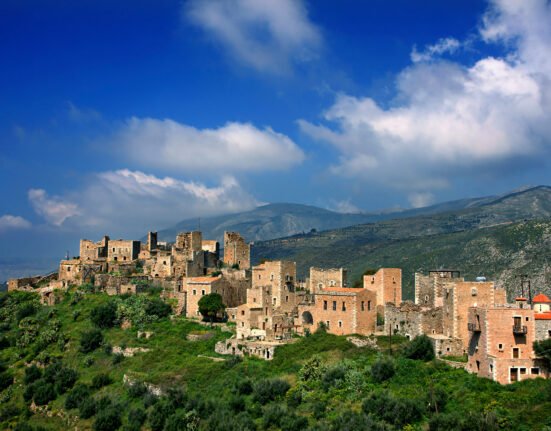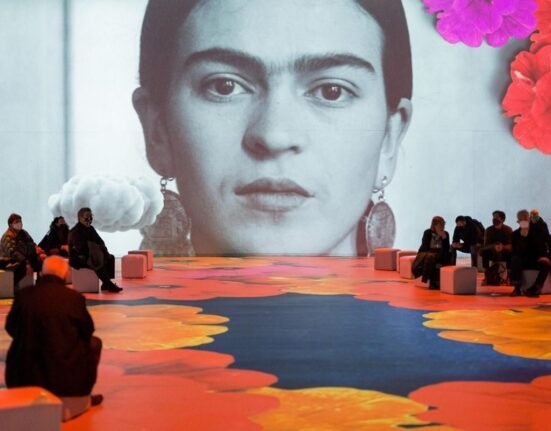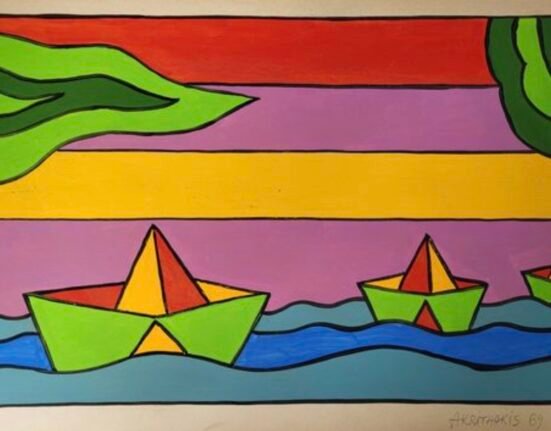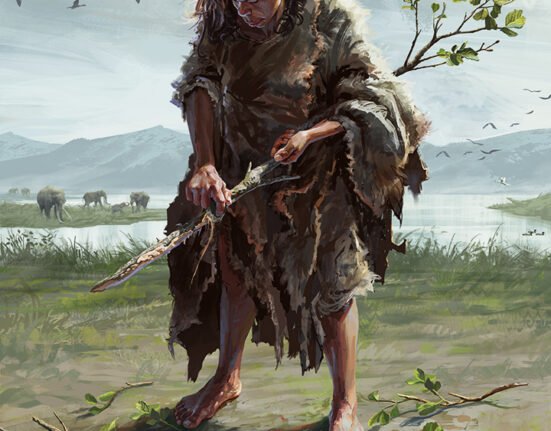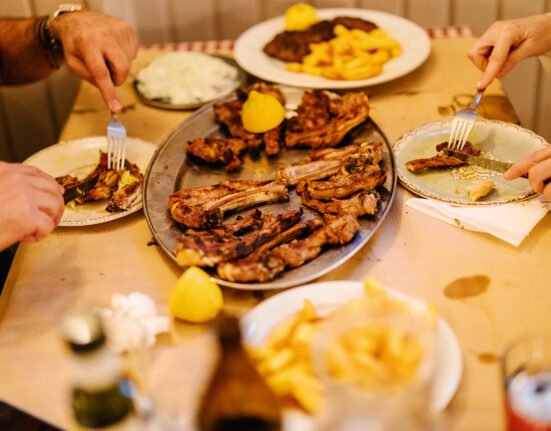Few narratives captivate the imagination quite like those of expatriation and repatriation. Antoniοs Liamis’s journey resonates deeply with expatriates worldwide, offering insights into the challenges and triumphs of navigating new cultures and territories. With the resilience akin to a phoenix rising from the ashes, he embodies adaptability, weaving a tale of reinvention amidst life’s ever-shifting landscapes.
Antoniοs Liamis embarked on a diverse professional journey, commencing in the dynamic world of lifestyle magazines in Greece during the early 2000s. Assuming a multifaceted role, he contributed to captivating content creation and production. As the economic downturn unfolded, Antoniοs adeptly navigated the transition to digital media, embracing change and expanding his skill set. His relocation to New York in 2016 marked a significant chapter, where he pursued further education while balancing familial responsibilities. In the heart of New York, he spearheaded initiatives to enhance bilingual education for Greek-American children, demonstrating his unwavering commitment to community endeavors. Upon his return to Greece, Antonis founded the Agora Campaigns Digital Agency, bridging cultural diversity with digital expertise. His ongoing collaborations with international clients underscored his adaptability and resilience across various professional landscapes. Through his journey, AntoniosLiamis’s narrative epitomizes a willingness to embrace change, pursue personal growth, and positively impact his community.

Part 1: Life Before Moving to the U.S.
Embracing the Heyday of Lifestyle Magazines
Could you describe your life before moving to the U.S.? You were a professional working for lifestyle magazines. Can you elaborate on your role and how it evolved with the rise of digital media?
Absolutely. The period from 2000 to 2011 marked the heyday of lifestyle magazines in Greece. It was a vibrant era where I embarked on a captivating journey. I witnessed firsthand the cultural and editorial dynamism that thrived before the downturn. My role was multifaceted, involving a blend of creativity and storytelling aimed at capturing the essence of Greek lifestyle. I contributed to the creation of compelling content that resonated with readers across the country. Working within the “glossy pages” of lifestyle magazines, I had the canvas to showcase the tapestry of Greek fashion trends and much more. These magazines covered a wide array of topics, from fashion and cuisine to sports, leisure, and Greek decoration, allowing me to explore various facets of our culture.
It must have been an exciting time before the economic crisis. Greeks were introduced to a more luxurious way of living.
Yes, indeed. The pre-crisis era was marked by a surge in interest in luxury living and upmarket trends.
How did you and your colleagues cope with the industry’s downturn?
The downturn was indeed challenging. Many of us found ourselves navigating uncertain times, facing cuts and declining advertising revenues as the digital revolution reshaped the media landscape. However, we were resilient, adapting to change and exploring new avenues for professional growth. Personally, transitioning from the vibrant world of print media to the digital realm was a significant shift.
Your journey sounds fascinating. How did your transition into lifestyle magazines unfold?
Before joining lifestyle magazines in 2006, I began my professional journey within a digital photo agency scene. This allowed me to collaborate with renowned names such as REUTERS and High End Celebrity Agencies such as Art and Commerce , Art partner and Contour Agencies in New York. My role involved securing picture rights for publication in Greece, providing a solid foundation for my later endeavors.
So, you had established connections even before your move to the States?
Yes, my prior experiences paved the way for my transition to New York. Visiting the city earlier enabled me to network with industry professionals and even participate in photography sessions with notable figures like Robert De Niro.
Your role as a Group Photography Director sounds intriguing. Can you elaborate on your responsibilities and the productions you were involved in?
Certainly. As a Photography Director for the Antenna Group publishing house, I oversaw photo-editing and production for various high-end fashion and lifestyle magazine titles. Collaborating with a team of editors, photographers, and stylists, we aimed to create visually stunning and culturally resonant content. Our productions spanned across home and decoration magazines like Oikia & Diakosmisi, Exodos, Geo Magazine, and Diva Magazine, covering a diverse range of topics and styles.
So, you were a photography producer from 2006 to 2011.
Yes, during those years, I found myself fully immersed in the world of printed media and lifestyle magazines. However, as the economic downturn hit Greece, I realized the need to redefine my professional path. The industry was rapidly evolving, and like many others, I had to navigate through uncertainty. I made the bold decision to embrace change head-on. I went back to studying, focusing on programming and coding, to merge my existing skills with new ones, adapting to the changing landscape.


Part 2: Transitioning to New York
From Print to Pixels: Navigating Digital Realms
Then you moved to New York to further your career.
Yes, in 2016, my wife and I decided to embark on a new journey seeking fresh opportunities in New York.
Was it coincidental that your wife was offered a position in New York by the Greek tourist office?
It was fortunate timing. After losing our jobs in 2011, I delved into digital media while honing my skills. When the opportunity arose, we applied for it, seeing it as a chance for a new experience abroad, particularly in a city as iconic as New York.
So, it was intentional, but the acceptance was coincidental?
Exactly. It was something we pursued, drawn by the allure of New York’s vibrant lifestyle, which we often see depicted in movies and advertisements.
Did New York live up to your expectations?
Absolutely. The transition from Greece to New York was a significant chapter in my life. It was a journey of adaptation, education, and community building. Adjusting to a new culture and navigating the American education system while pursuing my Master’s degree at the University of New York became central to my experience.
What were some of the challenges you faced professionally during this transition?
One significant challenge was the demand for U.S.-based experience and degrees. Despite my experience in New Media and various organizations, many prospective employers were focused on U.S. credentials.
Can you tell us about your collaborations with U.S. agencies?
Sure, during my job search, I encountered a common obstacle: the demand for U.S.-based experience and credentials. Many employers emphasized the importance of having a U.S. degree or work experience. This realization led me to consider further education as a means to enhance my professional prospects.
So, you didn’t initially plan to attend the CityUniversity of New York. What prompted you to pursue a degree there?
To be honest, my focus in the first year was primarily on settling my family into our new life. Adjusting to the educational system and lifestyle in New York was a priority, especially for my children. They had to adapt to a new language and culture, which required a lot of attention and effort on my part.
Your family’s adjustment must have presented its own set of challenges. Could you share some of those challenges and how you overcame them? Also, what positive surprises did you encounter in New York?
Certainly. One of the biggest challenges was language barriers for my children. When we moved, my youngest was just 6 months old, and my eldest was 5 and a half, kindergarten age. We enrolled him in a Greek-American school, but even there, the curriculum heavily prioritized English over Greek, leaving little room for maintaining proficiency in both languages.
That sounds tough. Did you feel that the quality of Greek education in New York was lacking compared to Greece?
Absolutely. The Greek curriculum in the Greek-American school was simplified compared to what’s taught in Greece. The materials provided by the Orthodox Church, which oversees these schools, were not as comprehensive as those provided by the Greek Ministry of Education. This discrepancy meant that my son’s Greek language skills lagged behind his English skills.
How did you address this gap in education?
AL: Recognizing the need for a solution, I became involved in various initiatives aimed at improving bilingual education for Greek-American children. I learned about the Greek dual language-bilingual programoffered by the New York state for other languages and felt that Greek should have a similar opportunity.
Was there any existing program for Greek children in public schools?
Surprisingly, no. While programs existed for other languages like Spanish and Hebrew, there was none for Greek. Most Greek-American families opted for charter schools run by the Orthodox Church, which integrated Greek language, tradition, and religion into the curriculum. However, these schools required tuition fees, making them inaccessible to many families.
Did you then take steps to address this issue?
Yes, I spearheaded efforts to gauge interest among Greek-American parents for a dual-language bilingual program in public schools. I created digital questionnaires to gather data and explain the potential benefits of such a program. The goal was to establish a pathway for Greek-American children to become proficient bilingual speakers within the public school system.
So, this approach is essentially immersion learning, where the student is fully immersed in the language.
Exactly. With this approach, students reach a level comparable to sixth or seventh-grade proficiency in both languages by the time they finish up elementary school.The dual-language program ensures that both languages are equally valued, rather than treating one as an additional or backup language. While basic Greek language instruction was available in U.S. schools, this program aimed to create true bilingual native speakers.
Was this program implemented during your time in New York?
It was on the verge of being implemented at a Greek school in Astoria, Queens. We had secured the support of the principal, secured funding from organizations like the Onassis and Niarchos Foundations, and even obtained equipment and resources. However, the COVID-19 pandemic put everything on hold. Transitioning to remote learning posed significant challenges for a program that relied on in-person interaction.
So, the program hasn’t been launched yet?
Unfortunately, no. After we returned to Greece, there wasn’t anyone actively championing the initiative. The pandemic’s prolonged duration made it difficult to resume efforts. Without a dedicated community driving the initiative, progress stalled.
Do you continue to oversee this initiative remotely?
I try to stay updated, but my capacity to support the program from Greece is limited. Many of the parents I collaborated with have moved on, and there’s a lack of continuity. It’s a complex endeavor that requires ongoing coordination and advocacy.
Perhaps the Greek government could step in to support the initiative.
That would be ideal, but community involvement is crucial for its success. Without active participation and feedback, it’s challenging to advance the program. There needs to be someone bridging the gap between the Greek and U.S. sides to ensure effective implementation. While I remain hopeful, I’m also realistic about the challenges ahead.
What’s the size of the Greek student population in elementary schools each year?
AL: In Astoria alone, we gathered data from questionnaires completed by 1200 students in grades 1 through 6. However, it’s challenging to provide an exact figure for the total Greek student population across the U.S. Each borough and region has its own network of charter schools, making it difficult to aggregate data. My focus was primarily on Queens, where I sought to engage with the active Greek community.
How challenging was it for you to balance your academic pursuits, community initiatives, and supporting your wife’s role in promoting Greek tourism?
Supporting my wife’s professional journey alongside my academic pursuits and community initiatives in New York was a balancing act. Amidst the challenges posed by the pandemic, my wife played a significant role in promoting Greek tourism as part of the Greek National Tourism Organization (GNTO) in New York. Her responsibilities spanned across the entire American continent, including Canada, Mexico, and the Caribbean islands, as she worked tirelessly to promote the “Visit Greece” campaign and attract tourists to our homeland.

So, you essentially became the primary caregiver for your family, juggling multiple roles and responsibilities. How did you manage that?
It was definitely a challenge to balance the duties of a mother, father, student, and contractor all at once. Adapting to this new role required a significant level of commitment and flexibility. While fulfilling, it was undoubtedly demanding. I found myself stretched thin at times, trying to support my wife’s career while also pursuing my academic goals and caring for our children. Despite the difficulties, I did my best to manage everything.
Your ability to adapt and take on traditionally female roles is quite commendable. Not many Mediterranean men would readily embrace such responsibilities. How did you navigate this transition?
Many would consider it heroic, but for me, it was about establishing new family dynamics while maintaining my mental well-being. I tried to set clear family rules and boundaries, but when things got tough, I focused on maintaining my psychological balance.
How did you cope with the stress and pressure?
Exercise and socializing were my go-to coping mechanisms. Regular gym sessions and jogging helped me relieve stress, while connecting with friends and sharing my experiences allowed me to decompress.
It’s remarkable how the community in New York supported you during challenging times. Despite its reputation as a tough city, there seems to be a strong sense of solidarity among residents. Did you find that surprising?
Absolutely. New York may appear tough on the surface, but its community spirit is incredible. People help each other out, especially in challenging situations. I experienced firsthand the kindness and generosity of strangers, which made our time in the city more manageable.
It’s truly inspiring to hear about the supportive environment in such a bustling metropolis. And your ability to thrive amidst the challenges speaks volumes about your resilience. How did this experience shape your perspective on life?
Our time in New York was transformative for our family. We gained maturity, resilience, and a deeper appreciation for each other. While New York offered many opportunities, we ultimately realized that Greece offered a better quality of life, especially for raisingteenage children. So, we made the decision to return and establish our professional ventures here.
Part 3: Challenges of Repatriation and Building Agora Digital Campaigns Agency
Repatriation Realities and Establishing Agora Digital Agency
Tell us more about your transition back to Greece and the establishment of the Agora Digital Campaigns Agency.
Returning to Greece marked a new chapter in our lives. Drawing from my experiences in New York, I established the Agora Digital Campaigns Agency, www.agoracampaigns.co, aiming to bridge cultural diversity and digital expertise. Despite being based in Athens, the agency serves clients not only in Greece but also across Europe and the United States.
Do you still work with clients from the U.S.?
Yes, having previously worked with clients as a contractor in the U.S., I’ve maintained those connections. They know that I’m now based in Greece, and I continue to collaborate with them on projects, particularly in data visualization storytelling projects.
Can you please provide an example of the projects you worked on? Can you describe some of them?
Sure, one of the projects I recently worked on was with The Museum of the Moving Image and their Blue Bus Project (TBBP). The Blue Bus Project, was a cultural initiative that brought the museum experience directly to various neighborhoods across the five boroughs of New York City. Instead of expecting people to come to the museum, the museum went to them. Each week, the bus hosted different workshops, gathering creators, artists, and materials to engage with communities in underserved areas. My role involved collecting data, conducting interviews, and creating visualizations to represent the impact of these workshops. For example, I created interactive maps showing workshop feedback, demographics, and participation details, which were then shared on the museum’s website for public viewing.
So, the museum conceptualized the project, and you handled the visualization. Would it be accurate to say that your role as a digital humanist involves using digital media for humanitarian purposes?
Definitely yes. My background in Digital Humanities, Data Analysis, and Visualization allowed me to contribute to projects like the Blue Bus Project, bridging the gap between cultural initiatives and technology. It’s about using digital tools to enhance human experiences and engagement.
Do you see potential for Digital Humanities projects in Greece? Have you come across any such initiatives here? How do you envision the future of Digital Humanities?
There have been some steps in the field in Greece, but there’s still much to be explored and developed. The future of Digital Humanities in Greece holds promise, especially as technology continues to evolve and as more organizations recognize the value of digital approaches in various domains.
Could you tell us more about the services offered by Agora Digital Campaigns Agency?
Agora Digital Campaigns Services focuses on promoting the online presence of brands or companies, particularly those involved in public information or advocacy. We handle digital campaigns, search engine optimization (SEO), web development and improvement, programmatic advertising, and social media campaigns. My specialization lies in crafting digital personas and visualizing datasets to enhance their digital presence.
To sum up, your experiences, both personal and professional, are diverse and multi-faceted. Which phase was more challenging for you, expatriation or repatriation?
Each phase presented its own set of challenges, but if I were to pinpoint the most demanding, it would be the repatriation phase. Our time in New York was transformative, both professionally and personally. We grew accustomed to the dynamic environment of a bustling metropolis, where opportunities in technology and culture were abundant. Returning to Greece felt like a significant transition. While we embraced the familiarity of our homeland and its rich cultural heritage, we also faced the reality of a technology landscape that was still evolving. It was a period of readjustment for us all, particularly for our children, who had to navigate a new educational system and societal norms. Yet, despite the challenges, the decision to return was driven by a belief in the overall better quality of life Greece offers. It’s a balancing act between embracing the opportunities abroad and cherishing the comforts of home.


